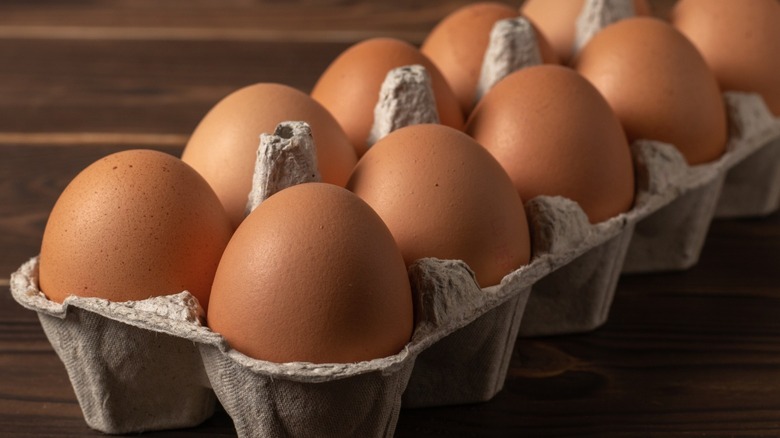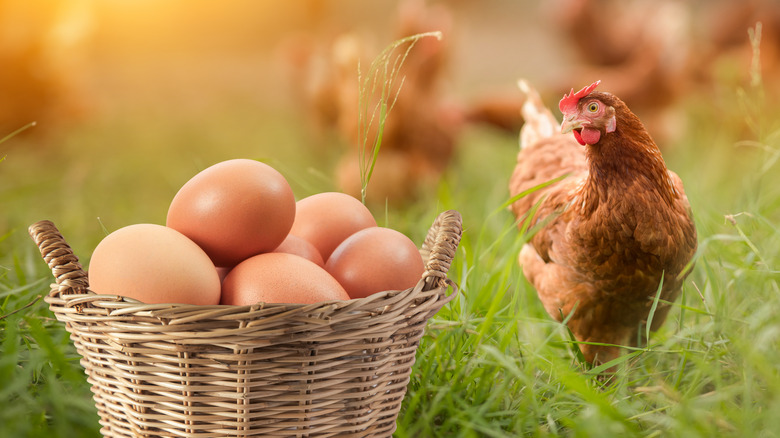The Toxic Reason You Should Think Twice Before Washing Your Eggs
It's a food safety tip that is almost universally known — wash your fruits and vegetables before cooking or consuming them. Washing can help remove things as innocuous as dirt and dust or as harmful as pesticide residue and E. coli. On the other hand, there are things for which washing just doesn't really do anything, and in other cases, washing can actually cause harm. This handy list of what you should and should not wash can help you figure that out.
One item that ticks both the "don't need to wash" and "should not wash" boxes are eggs. It sounds harmless enough. After all, you're just rinsing the shell, something you won't be eating, right? The actual raw egg inside isn't the thing being washed and won't even be touched by water, right? Well, wrong.
The main reason involves some pretty nifty lessons in chicken reproduction, but can essentially be boiled down to one fact — egg shells are not impermeable. Rather they allow the passage of things like oxygen, nutrients, and yes, bacteria to pass from outside the shell to the chicken embryo within.
The science behind why you shouldn't wash your eggs
When a chicken lays an egg, it produces a natural coating called a "bloom" or "cuticle" that covers the shell and protects the embryo within. Under current USDA guidelines, virtually all eggs sold commercially in the United States are washed before being sold, which removes that naturally occurring protective coating. Once washed, a thin coating of edible mineral oil is applied to the eggs to mimic the "bloom" and protect the egg until it's consumed.
Washing your eggs removes this coating, thus exposing the shell to the elements. Some droplets of water can actually pass through the permeable shell during washing, carrying with them any bacteria or germs that might be present in your tap water, on your hands, or on nearby surfaces. Even if you're worried about any bacteria being present on the surface of the shell, the chances of actually contaminating the part of the egg you'll be eating are far greater if you wash it.
So go ahead and still wash your produce (and here's what you need to know about washing fruits and veggies), but trust in the processes set up by the USDA and leave your eggs unwashed. Not only is it not necessary, but you might end up making things worse.

